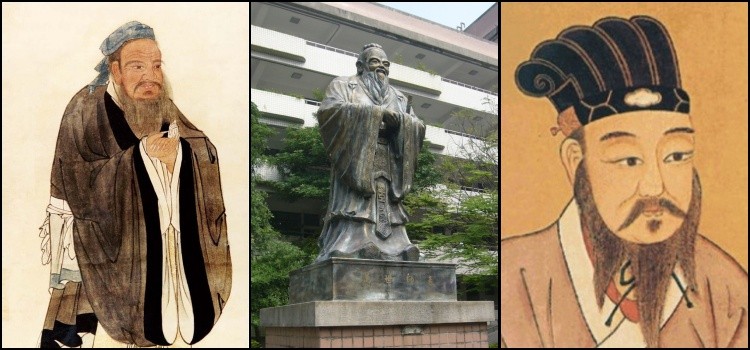Confucius (孔子, Kōshi) was a Chinese philosopher who lived in China from 551 to 479 BC His teachings, known as Confucianism (儒教, Jukyō), had a profound impact not only on China but also on Japan.
According to early Japanese writings, it was introduced to Japan via Korea in the year 285 AD. Some of the most important Confucian principles are humanity, loyalty, morality, and consideration.
During the Tokugawa Period (1600-1868), Confucianism had its peak of philosophical influence in Japan. There was a predominant impact on Japanese society at the time, and its influences can still be felt today.
Índice de Conteúdo
Confucianism in Japanese society
In Japan, Confucianism is an important philosophical teaching introduced at the beginning of civilization in Japanese history. Unlike Buddhism, which came from India, Confucianism was primarily a distinctly Chinese teaching.
It spread from the Han dynasty in China, to Korea, and then entered Japan via the Korean Peninsula. Confucianism overflows with lofty ideals that have always challenged humanity to achieve the highest state of perfection and self-fulfillment. The values and customs of Japanese society were heavily based on Confucius' philosophy.
However, as a political doctrine of the ruling elite, Confucianism was often expressed in cynical if not selfish ways, belying its own ideals. Those at the top of the hierarchy only provided verbal support but did not practice what they preached.
Confucianism in present-day Japan
In modern times, ever-resilient Confucian notions have provided conceptual foundations for integrating much of Western thought. Thoughts about self, society, family and politics.
Rather than assuming that history was progressing to better and better levels, Confucians tended to see ideals in the past. Confucian thought was the philosophical fuel at the time when Japan was a Shogunate.
However, the western influence that came with the Meiji Restoration eventually atrophied the influences of Confucianism. However, this was not the death of this philosophy in Japan. The idealists of the Restoration had their studies in the philosophy of Confucius.
However, at the time of the Restoration, the philosophical, political and social aspect managed to maintain itself, despite the introduction of Western policies.







